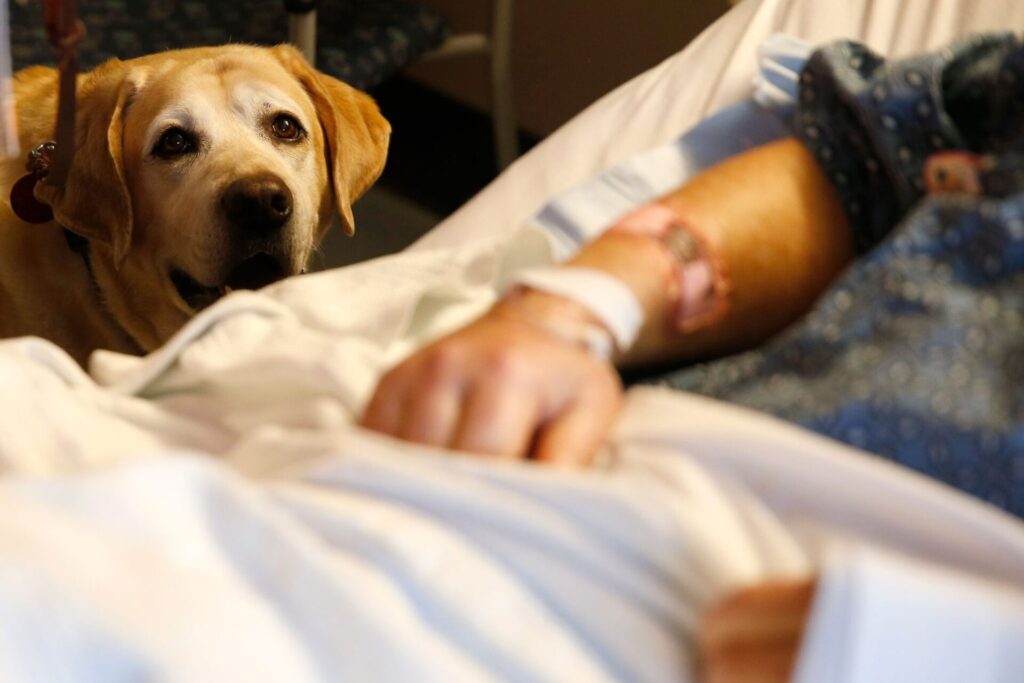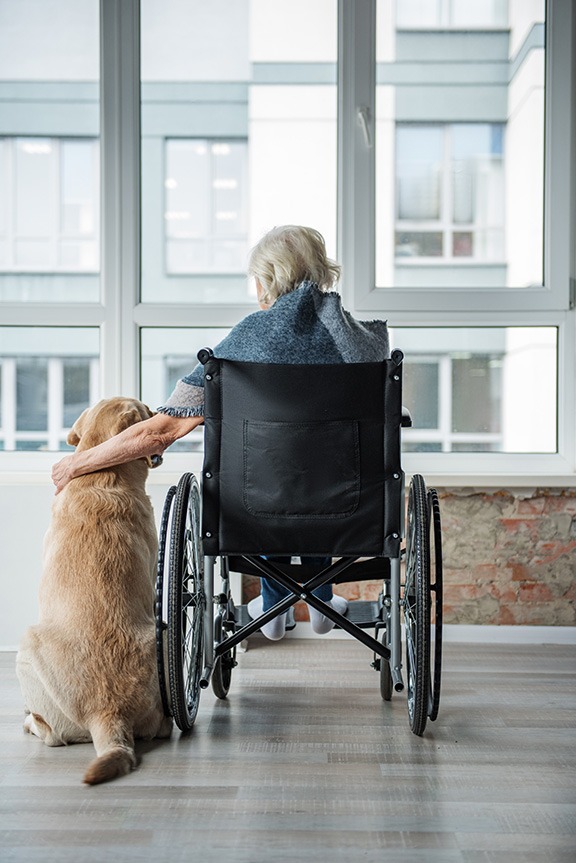
In a world often characterized by impersonal medical care, the comforting presence of a beloved pet can offer immeasurable solace. The bond between humans and dogs is undeniable, and in times of illness and distress, this connection can be particularly meaningful. This article explores the compelling argument for allowing dogs to visit their dying owners in hospitals.

The Benefits of Canine Companionship
- Emotional Support: Dogs are natural companions, capable of providing unwavering emotional support. Their unconditional love and affection can alleviate feelings of loneliness, anxiety, and depression in patients facing terminal illnesses.
- Stress Reduction: The presence of a familiar pet can significantly reduce stress levels in patients. Studies have shown that interacting with animals can lower blood pressure, heart rate, and cortisol levels, all of which are important factors in managing illness.
- Improved Mood: Dogs have a remarkable ability to brighten our moods. Their playful antics and joyful demeanor can create a positive atmosphere and lift the spirits of patients and their loved ones.
- Enhanced Quality of Life: For patients facing the end of their lives, the opportunity to spend time with their beloved dogs can improve their overall quality of life. It can provide a sense of purpose, connection, and peace.

Addressing Concerns and Challenges
While the benefits of canine companionship are undeniable, there are legitimate concerns that must be addressed. These include:
- Hygiene and Sanitation: Ensuring the cleanliness and hygiene of hospital environments is paramount. However, with proper protocols and guidelines, the risk of infection can be minimized.
- Allergic Reactions: Some patients may have allergies to animals. It is essential to carefully assess patients’ allergies and take appropriate precautions.
- Behavioral Issues: Not all dogs are suitable for hospital visits. It is important to screen dogs for behavioral issues and ensure they are well-trained and gentle.

Implementing Canine Visitation Programs
To successfully implement canine visitation programs in hospitals, the following factors should be considered:
- Guidelines and Protocols: Clear guidelines and protocols must be established to ensure the safety and well-being of both patients and dogs.
- Training and Certification: Dog handlers should undergo training and certification to ensure they understand proper handling and safety procedures.
- Staff Education: Hospital staff should be educated about the benefits of canine companionship and trained in how to interact with patients and their dogs.

The healing power of canine companionship is undeniable. By allowing dogs to visit their dying owners in hospitals, we can provide immeasurable comfort and support during a challenging time. It is a compassionate and humane approach that can enhance the quality of life for patients and their loved ones.

Leave a Reply